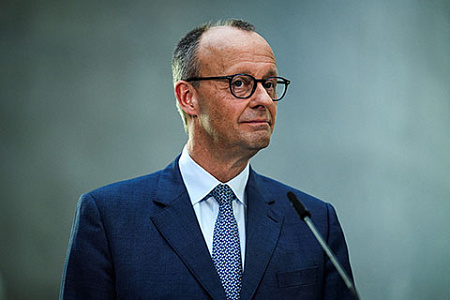
Friedrich Merz, leader of the Christian Democratic Union (CDU), announced that his party and the Social Democratic Party of Germany (SPD) have agreed on the main positions of the future coalition agreement. Their points of view converged on three major issues – migration policy, the extra–budgetary fund and social spending. This is the basis for more detailed negotiations on all areas, which are scheduled to begin this week.
The negotiated package prepared by both parties includes a tightening of migration policy, as well as a number of economic and social measures designed to revitalize German business life. The creation of a special extra-budgetary fund in the amount of 500 billion euros is central to the economic section.
The goal of the migration policy is to reduce the flow of illegal immigrants into the country. To do this, control at the German border should be tightened, and all illegal migrants, in agreement with Germany’s neighbors, will be sent back. It provides for the curtailment of all programs for the reception of refugees, in particular from Afghanistan. Those who are subject to expulsion should be under arrest, not at large.
In the economic sphere, a minimum hourly wage of 15 euros is being introduced. It provides for the involvement of pensioners in the labor process. In this regard, the tax-free base for this category of persons increases to 2 thousand euros per month (in Germany, pensioners pay taxes on pensions). A two-year rent freeze is being declared. It was decided to develop tax relief for the middle class. In gastronomy, VAT will be limited to 7%.
A reform of unemployment benefits is envisaged, according to which persons who refuse a job offered to them by the labor department may lose the corresponding benefit. Tariffs for all categories of electricity consumers will be reduced by 5 cents per kWh.
The proposed reforms will require significant subsidies from a special extra-budgetary fund in the amount of 500 billion euros. However, the creation of such a fund, which is possible only by changing the Constitution, has already faced criticism from prominent German economists. They believe that the proposed measures will lead Germany into debt.
For example, Veronika Grimm, a member of the German Economic Council, known as the “Five Wise Men,” believes that the planned expenditures are not aimed at future investments in the economy. According to the expert, they serve only the purpose of providing room for maneuver in the current budget. In other words, the borrowed funds will be spent on maintaining existing social expenses.
According to Grimm, the population, on the one hand, is promised social protection and security. But on the other hand, they are trying to instill the need for all possible restrictions due to the escalating international situation. And this is being done instead of carrying out real reforms. By getting into debt, the government is creating a situation from which there will be no other way out than to build up the national debt.
According to the expert, the increase in debt will eventually lead not only Germany, but the entire European Union to a debt crisis, when no one will provide money from outside and there will be nothing to cover current expenses. For the industry, this will mean the end of growth. Based on the above, the expert considers naive the ideas of the CDU/CSU and SPD leaders that by borrowing money on the side, it will be possible to solve the problems facing the country.
All these solutions with huge loans are temporary and lead to a crisis, Grimm is convinced.
